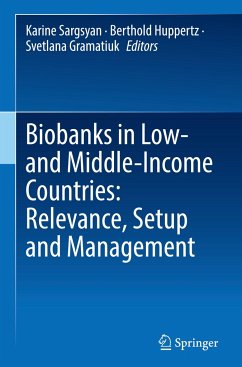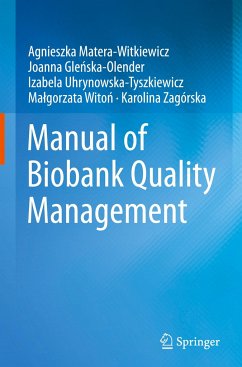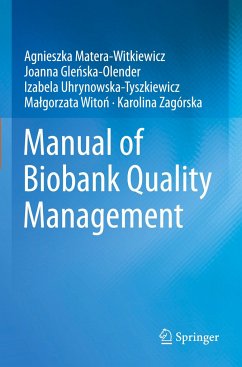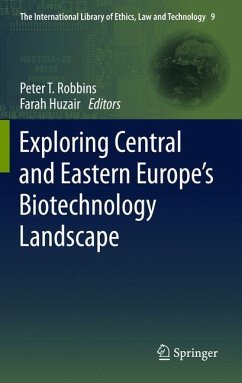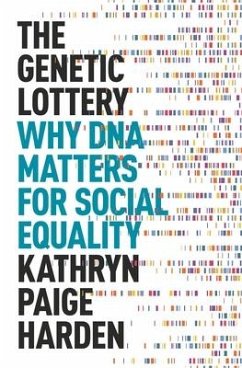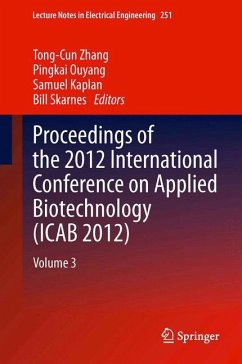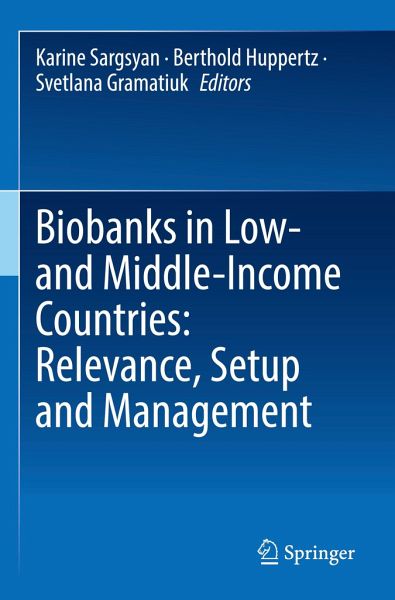
Biobanks in Low- and Middle-Income Countries: Relevance, Setup and Management
Versandkostenfrei!
Versandfertig in 6-10 Tagen
46,99 €
inkl. MwSt.

PAYBACK Punkte
23 °P sammeln!
This book introduces the fundamentals of biobanking and guides through the practical planning thereof, with a special focus on the situation in low- and middle-income countries. On the example of the setup of a Ukrainian biobank the book discusses the main steps and aspects of successful biorepository implementation and management. Topics covered include collection, storage and shipping of samples, establishment of an IT system, development of a sustainability plan, and project and risk management. Furthermore, the importance of the formation of international biobanking societies such as the U...
This book introduces the fundamentals of biobanking and guides through the practical planning thereof, with a special focus on the situation in low- and middle-income countries. On the example of the setup of a Ukrainian biobank the book discusses the main steps and aspects of successful biorepository implementation and management. Topics covered include collection, storage and shipping of samples, establishment of an IT system, development of a sustainability plan, and project and risk management. Furthermore, the importance of the formation of international biobanking societies such as the Ukraine Association of Biobanks is highlighted, and their main objectives and tasks are discussed.
The book addresses life science and business professionals as well as national authorities who are interested in biobanking in general and in setting up a biobank in particular.
The book addresses life science and business professionals as well as national authorities who are interested in biobanking in general and in setting up a biobank in particular.





